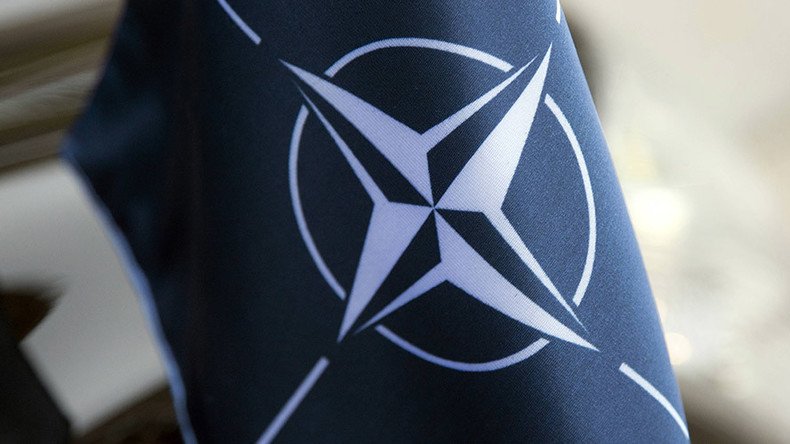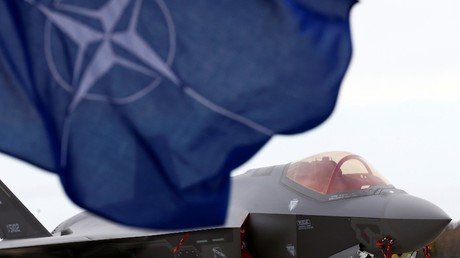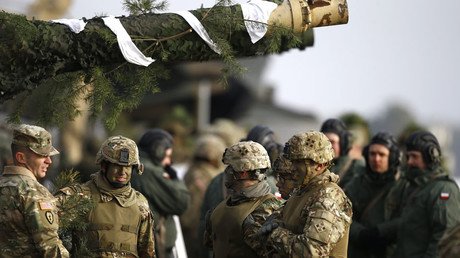NATO guarantees – just a myth? German memo claims US free to decide whether or not to aid its allies

Under the NATO Treaty, the US has a right to independently decide whether it is obliged to help its allies, a confidential German memo says. A historian, who obtained the decades-old document, says it effectively makes the whole agreement just a declaration of intent.
“In case of a military attack on any NATO country and Germany in particular, the United States is only obliged to lend such assistance as it deems necessary,” a confidential memo prepared for Chancellor Konrad Adenauer in 1955 said. It was drafted about a month after West Germany joined the Alliance.
The document, called “The US assistance obligations to the Federal Republic [of Germany],” adds that the US commitments are in fact “not that extensive.” “Even the issue of whether an attack [on a NATO ally] takes place as well as the form and degree of help is left to the discretion of the US,” the memo from the German Foreign Ministry’s political archive said.
It was obtained by historian and writer at the German Der Spiegel weekly, Klaus Wiegrefe. The historian explains that according to the document, NATO’s stance effectively allows the US, just like any other member of the Alliance, to step aside and do nothing in case of an attack on other NATO members.
The document was prepared by a group of lawyers and legal experts from the German Foreign Ministry more than half a century ago. However, Wiegrefe draws attention to the fact that the Treaty itself has not been substantially changed since the times of Adenauer, so nothing gives a reason “to interpret it in a different way than 60 years ago.”
The historian further points out that the US Senate explicitly said the treaty does not limit the US leader’s options. After perusing the memo, Adenauer noted that it envisages “no automatic assistance obligation,” as it “would contradict US constitutional law,” according to Wiegrefe.
These facts reduce the NATO document to a mere declaration of intention, the historian said, adding that it also calls into question the statements made by German Chancellor Angela Merkel over recent years. In 2014, the chancellor said NATO has an “obligation to help each of its member states.”
A year later, at the Munich Security Conference, she stated that the provisions of the NATO Treaty “go beyond the declarations of intention.” The German Foreign Ministry also recently told Der Spiegel that the alliance treaty forms the basis for “mutual security guarantees.”
All these statements do not seem to convince Wiegrefe, who remains skeptical about the NATO Treaty. However, the overall picture might be not as straightforward as he puts it.
Article 5 of the Treaty states that each of the NATO member states “will assist the Party or Parties so attacked by taking forthwith, individually and in concert with the other Parties, such action as it deems necessary, including the use of armed force.” It effectively rules out a situation in which a NATO country would just step aside and do nothing in case of an attack on another member of the Alliance, even though it is still free to decide on the measure of aid it would lend.
Article 6 of the treaty also defines an attack on a NATO member state as “an armed attack on the territory” or “on the forces, vessels, or aircraft” of any of the parties to the treaty, meaning, the agreement contains a definition of cases in which NATO member states should help its allies. That means that it is not up to any of the member states to decide, whether such an attack has taken place, as Wiegrefe claims, citing the memo.
The US recently provoked mini panic among European NATO members as Washington questioned its obligations to its allies. US President Donald Trump repeatedly referred to NATO as “obsolete” during his election campaign and spoke of the need to update the 68-year-old alliance’s “outdated mission and structure.”
In July 2016, he emphasized that the US supports NATO “far more than we should,” adding that there are “a lot of countries that aren't doing what they're supposed to be doing.”
He also said that if he were elected, the US would not be strictly held to its Article 5 provisions to defend militarily any allied nation, especially those not paying their fair share.
However, he retracted his remarks after taking office. At the same time, though, the issue of defense burden-sharing still remains a hot issue for the US president. During his first NATO summit in May, Trump publicly criticized most NATO members and said they "must finally contribute their fair share and meet their financial obligations."














